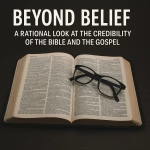The New Age movement, which gained traction in the latter half of the 20th century, offers a diverse tapestry of esoteric, mystical, and alternative spiritual practices. Its core tenets often champion individual spiritual exploration, holistic well-being, and a sense of universal interconnectedness. However, when examined closely, this fluid spiritual paradigm presents significant theological and philosophical conflicts with traditional Christian doctrines.
This post aims to explore the key characteristics of the New Age movement and illuminate its fundamental incompatibilities with the foundational beliefs of Christianity.
Core Principles of the New Age Movement
The New Age movement is marked by its syncretic nature, blending elements from Eastern philosophies, mysticism, and alternative healing modalities. Key beliefs often include:
- Holistic Health and Healing: A strong emphasis is placed on the interconnection of mind, body, and spirit. New Age practices frequently incorporate alternative therapies such as acupuncture, Reiki, and crystal healing, advocating for self-healing and energetic balance over, or alongside, traditional medical approaches.
- Spiritual Evolution: Adherents often believe in the progressive evolution of human consciousness towards a higher state of enlightenment or spiritual awakening. This can involve ideas of ascending to different planes of existence or becoming more attuned to unseen spiritual energies.
- Universalism and Syncretism: The movement generally promotes a universal form of spirituality that seeks to integrate elements from various religious traditions, including Hinduism, Buddhism, and indigenous beliefs. This inherent inclusivity often clashes with religions that hold to exclusive truth claims.
- Reincarnation and Karma: A belief in reincarnation (the soul undergoing multiple lifetimes) and karma (the principle of cause and effect across these lives) is central to many New Age perspectives.
- Self-Divinity and Personal Empowerment: A core New Age philosophy is the emphasis on self-realization and personal empowerment. This often includes the idea that individuals possess an inherent divinity and have the power to create or shape their own reality.
Key Hindu Teachings in the New Age Movement
Several core tenets of Hinduism have been prominently embraced and reinterpreted by the New Age movement.
- Karma and Reincarnation
In Hinduism, karma is the foundational principle of cause and effect, where one’s actions in this life profoundly influence their future lives. Reincarnation is the inherent belief that the soul undergoes cycles of birth, death, and rebirth, striving towards liberation (moksha).
New Age Adaptation: Within the New Age, karma is often viewed as a universal law of moral causation impacting personal and spiritual growth. It’s frequently used to understand personal experiences and life’s challenges, with the empowering belief that individuals can reshape their lives by transforming their actions and attitudes. Reincarnation is similarly adapted, with many adherents believing in multiple lifetimes as invaluable opportunities for soul evolution and self-betterment, emphasizing that one’s current life is significantly shaped by past actions.
- Meditation and Mindfulness
Hinduism boasts a rich, ancient tradition of meditation (dhyana) and mindfulness (smriti) practices. These are aimed at achieving spiritual realization and profound self-discovery, often involving focused concentration, mantra chanting, and seeking union with the divine.
New Age Adaptation: The New Age movement has wholeheartedly embraced meditation and mindfulness, often integrating them into daily wellness routines and diverse spiritual practices. Techniques like guided meditation, creative visualization, and various mindfulness exercises are popular, primarily used to promote relaxation, foster personal insight, and cultivate a sense of inner peace. The emphasis is frequently on the therapeutic benefits, highlighting their power to enhance mental and emotional well-being.
- Yoga and Spiritual Practice
Originally a comprehensive spiritual discipline in Hinduism, Yoga encompasses physical postures (asanas), breath control (pranayama), and meditation, all aimed at achieving spiritual liberation.
New Age Adaptation: In the New Age sphere, yoga is widely practiced, often as a form of physical exercise and a path to holistic health. While traditional Hindu yoga is deeply interwoven with spiritual and philosophical components, New Age practitioners often gravitate towards the physical and mental benefits. The practice is frequently tailored to emphasize relaxation, stress relief, and personal empowerment, sometimes divesting it of the more explicitly religious or philosophical elements of its traditional roots.
- Cosmic Consciousness and Unity
A central teaching in Hinduism is the concept of the ultimate reality (Brahman) and the inherent interconnectedness of all existence. The idea of cosmic consciousness or universal unity reflects the belief in an underlying divine presence that permeates the entire universe.
New Age Adaptation: The New Age movement often resonates deeply with the idea of cosmic consciousness or universal unity, promoting the belief in an interconnected and interdependent universe. This aligns with New Age views on the web of life and the notion that individuals are integral parts of a larger cosmic whole. The emphasis on spiritual awakening and realizing one’s connection to the universe mirrors this Hindu-inspired understanding of unity and divine presence.
- Self-Realization and Enlightenment
Hinduism places great emphasis on the pursuit of self-realization (atman)—understanding one’s true nature and unity with the divine—and enlightenment (moksha), representing liberation from the cycle of rebirth, as ultimate spiritual goals.
New Age Adaptation: The New Age movement frequently incorporates themes of self-realization and personal enlightenment, encouraging individuals to embark on journeys of inner exploration and seek higher states of consciousness. These concepts are adapted to fit the New Age focus on personal growth, spiritual awakening, and unlocking individual potential. The primary aim is achieving personal fulfillment and understanding one’s true essence, paralleling the Hindu goals.
Christian Doctrinal Foundations
Christianity, built upon the teachings of Jesus Christ as recorded in the Bible, holds to several core beliefs that directly contrast with New Age principles:
- The Nature of God: Christianity is staunchly monotheistic, teaching that God is a personal, transcendent Creator, distinct from His creation. In contrast, New Age spirituality often leans towards pantheism (God is the universe) or panentheism (God is in all things, and the universe is in God).
- Salvation and Redemption: A central tenet of Christianity is that salvation from sin and eternal life are achieved through faith in Jesus Christ—His atoning death and resurrection. This path to salvation is presented as unique and exclusive.
- The Authority of Scripture: For Christians, the Bible is considered the divinely inspired and authoritative Word of God, the ultimate guide for faith, doctrine, and moral conduct.
- The Nature of Human Existence: Christianity teaches that humans are created in the image of God, yet are fallen and distinct from Him. Their purpose is to glorify God and live in a right relationship with Him.
- The Concept of Sin: The doctrine of sin is crucial in Christianity, understood as a transgression against God’s law that separates humans from Him and necessitates redemption.
Examining the Incompatibilities
The differences between the New Age movement and Christianity are not superficial but strike at the core of their respective worldviews:
- Theological Differences: The New Age’s common pantheistic or panentheistic views of divinity (where the divine is an impersonal force or identical with creation) directly conflict with the Christian understanding of a personal, transcendent, and sovereign God who exists apart from His creation. The New Age emphasis on the divine within every individual contradicts the Christian belief in God’s distinct otherness and humanity’s need for His grace.
- Salvation and the Afterlife: The New Age belief in reincarnation and karmic cycles for self-improvement or spiritual evolution undermines the Christian doctrine of a single life on earth followed by judgment, and salvation offered as a free gift through faith in Jesus Christ, leading to eternal life with God.
- Authority and Revelation: Christianity’s reliance on the Bible as the definitive and final source of divine revelation stands in stark contrast to the New Age movement’s eclectic approach. The New Age often dismisses or subordinates traditional religious texts in favor of personal spiritual experiences, inner guidance, or channeled information.
- Moral and Ethical Frameworks: The New Age focus on personal empowerment and self-realization can foster a relativistic approach to ethics, where moral standards are viewed as subjective or individually determined. Christianity, however, upholds objective moral truths grounded in God’s character and revealed will.
- Purpose and Meaning: The New Age movement’s emphasis on individual spiritual growth, tapping into inner potential, and self-achievement as the primary purpose can conflict with the Christian perspective that life’s ultimate purpose is to know God, love Him, obey His commands, and find meaning in a relationship with Him through Jesus Christ.
Conclusion: Two Divergent Paths
The New Age movement and Christianity represent fundamentally different and irreconcilable worldviews. While the New Age offers a broad, inclusive spiritual framework emphasizing personal empowerment, self-discovery, and universal interconnectedness, Christianity maintains distinct, historically grounded doctrines concerning the nature of God, the person and work of Jesus Christ, the reality of sin, the means of salvation, and the authority of Scripture.
The incompatibilities are profound, touching upon the very essence of spirituality, the divine, human nature, and ultimate destiny. Individuals attempting to blend or reconcile New Age beliefs with Christian teachings will inevitably encounter these deep-seated conflicts, often necessitating a careful re-evaluation of their core spiritual commitments and understanding of truth.
Discover more from discernment.watch
Subscribe to get the latest posts sent to your email.



